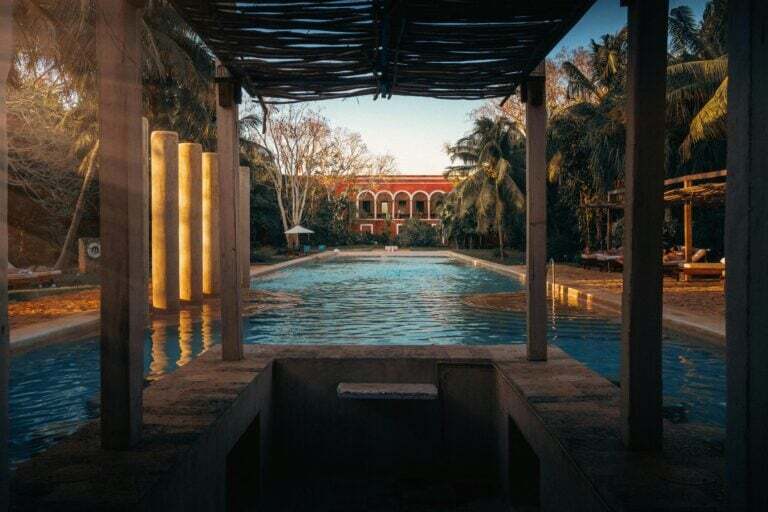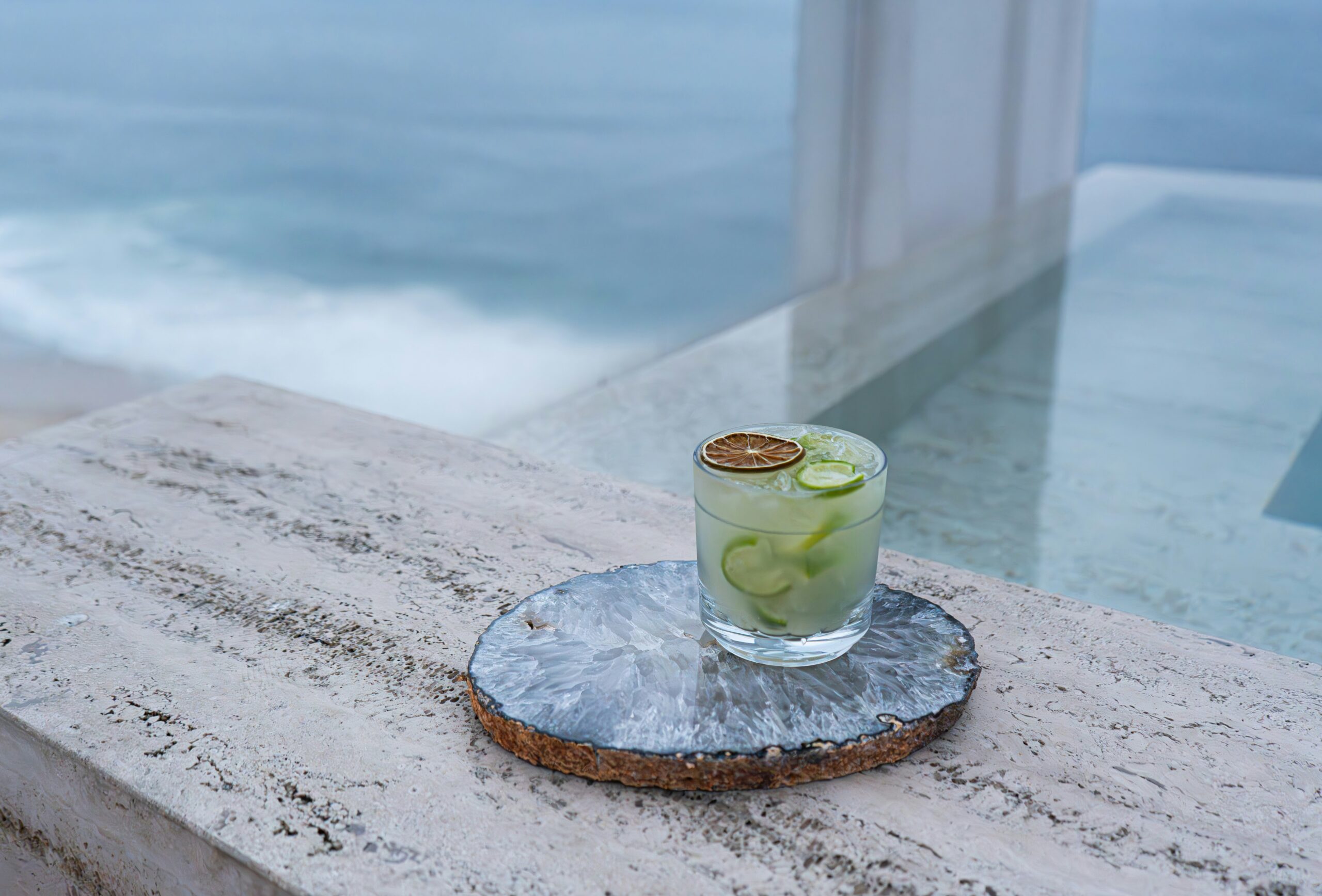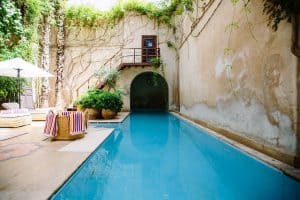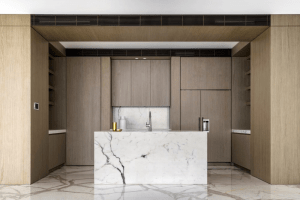Natural stone is the best option of material when it comes to pavers around your pool area. However, when you are designing your pool surrounds, choosing the right pavers is crucial for both aesthetic and functional purposes. That is why we highly recommend opting for either granite pavers or travertine pavers.
These two stones are perfect for use as pool pavers. But which one is right for you? In this guide, we will break down the main differences and compare both granite and travertine.
What to Look for When Choosing Pool Stone Pavers
Before we get started, it is important to understand the main considerations for choosing your pool stone pavers.
1. Appearance
The colour and texture of your chosen pavers should complement the outdoor style and space of your home. Consider what works with your architectural style and your outdoor area, and think about the visual impact you are trying to create.
2. Durability
While natural stone materials of all kinds are highly durable, pool pavers are exposed to a variety of chemicals, such as chlorine and salt, foot traffic and weather conditions. That’s why you need stone pavers with high resistance to wear and tear.
3. Slip resistance
Safety is paramount in and around pools. That is why it is recommended that you opt for a non-slip surface to prevent accidents as the pavers are likely to be wet a significant amount of the time.
4. Heat Resistance
Pool pavers are often in direct sunlight, especially here in Sydney, Australia. Make sure you choose a material, such as stone, that remains cool underfoot even during the hot summer months.
5. Maintenance
All pool pavers require some degree of maintenance. However, some require more time, effort and money to keep looking and functioning optimally. Consider your appetite and willingness for ongoing maintenance.
6. Cost
Cost is always going to be an important factor. While this refers to the cost of the stone material and labour required for installation, it should also factor in ongoing maintenance costs and the return on investment of a long-term, long lasting solution as opposed to one that won’t stand the rest of time.
Comparing Granite Pavers Vs Travertine Pavers

Granite Pool Pavers
Granite pavers are a popular option for use around pools. When it comes to durability, granite is up there with the hardiest of stones. However, it is not entirely resistant to chipping and cracking – which is a consideration for households with pools subject to lively activity.
As far as aesthetic appeal goes, granite offers an elegant and refined look. It can be finished in a variety of ways and comes in a wide range of colours, shades, and style so matching it to your existing or intended design is easy.
On a practical note, granite pool pavers are generally quite slip resistant. Of course, when wet, it can be more slippery but there are numerous anti-slip solutions that can be applied and ensure you enjoy all the benefits of granite without the loss in safety.
Granite pavers require low maintenance and are highly resistant to stains. Simple cleaning and resealing every so often is more than sufficient to ensure your pool pavers look and function optimally for long into the future.
Granite stone is not the cheapest material for use around your pool. However, the long lasting and durable nature of the material means that the initial investment will long outlast other types of pool paver materials.
Travertine Pool Pavers
Travertine pavers are also a good and popular option for pool surrounds. It is a highly durable material as well, though – amongst natural stone varieties – it is more porous than other options. However, with regular, professional resealing travertine pavers can be easily maintained.
Travertine brings with it a highly unique aesthetic. Its earthy tones and unique texture makes it perfect for natural landscapes and rustic design styles. Like granite and other stones, travertine is available in a rather surprisingly wide variety of different colours and patterns. So, finding the right aesthetic for you is easy.
Travertine is naturally far more slip-resistant than granite and other pool paver options. This is due to its inherent texture, providing more friction and grip than smoother stone varieties. Additionally, it is quite heat resistant so it will feel comfortable underfoot even under the harshest of sunlight.
From a cost perspective, travertine is the more affordable option, compared to granite. However, it is important to consider not just the initial cost but the ongoing cost of maintenance. Being more porous, especially around pool water, travertine pavers may require more regular sealing.
Pros and Cons of Granite and Travertine
In summary, both granite pavers and travertine pavers come with advantages and disadvantages.
Granite Pavers - pros and cons
Pros
- Exceptional durability
- Low maintenance
- Beautiful aesthetic
Cons
- Higher initial cost
- More prone to cracking and chipping
- Less slip-resistant
Travertine Pavers - pros and cons
Pros
- Highly slip and heat resistant
- More cost effective
- Unique and varied aesthetic
Cons
- Higher porosity
- Greater maintenance needs
- May not last as long
Euro Marble - the premier suppliers of travertine and granite pavers Sydney
Choosing between granite and travertine pavers for your pool surround will come down to your preferences, priorities and price sensitivity.
Both granite and travertine pool pavers are fantastic options to transform your pool area and turn it into something unique, beautiful and functional.
If you would like to discuss your pool paver needs in more detail or want to arrange a time to come into our showroom and view these stone varieties for yourself in person, make sure to give the Euro Marble team a call today.





